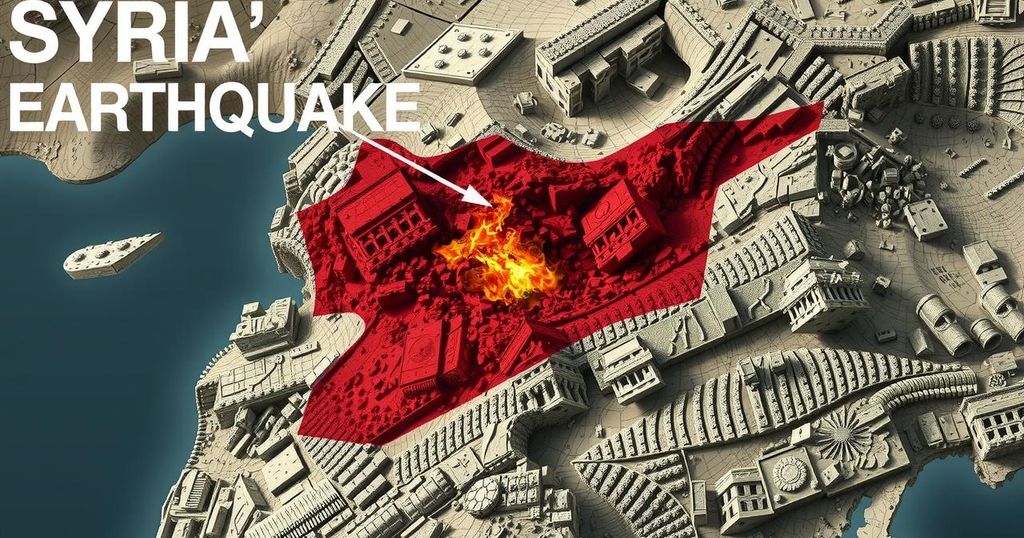Global news
AFRICA, AHMAD SHEMALI, AMAL, ASIA, ASSAD, BEIRUT, CEASEFIRE, CONFLICT, HEZBOLLAH, ISLAMISTS, ISRAEL, JAMAAH ISLAMIYA, JOSEPH AOUN, LEBANON, LIBYA, MIDDLE EAST, NA, NORTH AMERICA, ROUMIEH, SHEIKH AHMAD SHEMALI, SHIITE AMAL MOVEMENT, SIDON, SYRIA, TAHRIR AL - SHAM, TERRORISM, TRIPOLI, UNITED STATES
Isaac Bennett
0 Comments
The Impact of Syria’s Upheaval on Lebanon’s Political Landscape
The collapse of Assad’s regime in Syria sparked celebrations in Lebanon, especially among Sunni communities, but soon led to demands for the release of Sunni prisoners. Sunni activism is on the rise amidst Hizbullah’s decline, reflecting shifting power dynamics. Upcoming presidential elections may further complicate these tensions as factions jockey for influence.
The events unfolding in Lebanon following the upheaval in Syria showcase a complex interplay of sectarian dynamics and political maneuvering. Initially, the collapse of the Assad regime led to joyous celebrations within Lebanese Sunni communities, particularly in cities like Tripoli and Beirut. However, as the enthusiasm faded, Sunni groups such as Jamaah Islamiya became increasingly focused on domestic issues, specifically seeking the release of Sunni prisoners in Lebanon’s jails.
On December 10, Sheikh Ahmad Shemali spearheaded a protest demanding immediate amnesty for incarcerated Islamists, signifying a burgeoning Sunni activism aimed at reclaiming influence within Lebanon. The unrest reflects a significant shift, bolstered by the victories of Sunni groups such as Tahrir al-Sham in Syria, which has invigorated aspirations among Lebanese Sunnis to assert dominance over a resurgent Hizbullah.
The political landscape in Lebanon is currently fraught with tension; the Shiite community, facing setbacks from Israel and internal dissent, grapples with Hizbullah’s diminishing power. Concurrently, Lebanese Armed Forces Commander General Joseph Aoun’s negotiations with Hizbullah illustrate ongoing conflicts regarding military authority and the implementation of ceasefire agreements.
As Lebanese factions vie for political dominance ahead of the upcoming presidential elections, Christian groups remain splintered and are searching for a viable consensus candidate, amid accusations of collusion against figures like Jibran Bassil. The Sunni community’s awakening occurs against the backdrop of a Sunni regime in Syria, prompting fears of potential instability within Lebanon, particularly as memories of ISIS incursions linger.
Despite the complexities, Ahmad al Sharaa, leader of the anti-Assad forces, has publicly expressed support for General Aoun, suggesting a temporary stabilization of relations between Syrian and Lebanese actors. However, the potential for renewed instability remains, contingent on both Syrian developments and Lebanese political maneuvering.
The political situation in Lebanon has been significantly impacted by the devastation and changes brought on by the Syrian civil war. With the fall of Bashar Assad’s regime in Syria, Lebanese Sunni communities initially rejoiced, yet they soon turned their focus towards domestic grievances, especially concerning the release of Sunni prisoners. This shift is influenced by the changing power dynamics on the Syrian front, where Sunni groups have gained traction, prompting Lebanese Islamists to seek increased recognition and representation within Lebanon. The implications of Sunni activism and the decline of Hizbullah signal potential shifts in Lebanon’s political landscape, particularly as the nation approaches critical upcoming elections.
In conclusion, the aftermath of Syria’s upheaval has catalyzed a resolute awakening among Lebanon’s Sunni communities, accompanied by corresponding pressures on Hizbullah and the Shiite community. The interplay of military and political alliances reflects a fluid and volatile landscape, where potential power shifts could lead to instability. As Lebanese factions prepare for pivotal elections, the repercussions of Syrian developments will undoubtedly reverberate across Lebanon, necessitating keen observation of both political trends and sectarian sentiments.
Original Source: www.jewishpress.com




Post Comment